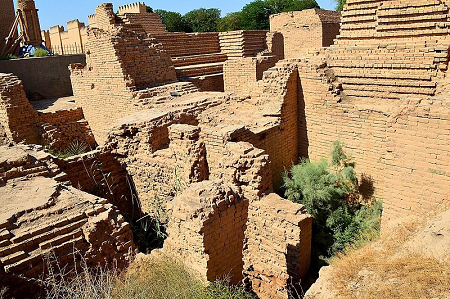October 16, 2001.
“Joe eats like a pig.” “Like” — a comparison. We use comparisons all the time. No one has to tell us that comparisons have limits. We just assume it in the context of each situation. Since “Joe” never got down on all fours in the mud to eat without hands, we know the remark means that he eats too much or without manners. Comparisons have limits. They must be seen in context.
The same is true in Bible study; and we often apply limits without a second thought. In Luke 17:26-27, for example, when Jesus said His return would be “as it was in the days of Noah,” nobody imagines that we should all build arks to prepare for another worldwide flood. The context shows that “as in the days of Noah” means that life will be going on normally when sudden destruction comes. The context defines the limits of the comparison.
This is also true in prophecies of Babylon. Isaiah said: “Babylon… shall be as when God overthrew Sodom and Gomorrah” (13:19). “As when.” But in what respect? Would Babylon be completely demolished and never found–like Sodom and Gomorrah? The context says, “No.” Verse 21 says, “Their houses shall be full of doleful creatures.” There will still be houses there, albeit in ruins. The context explains the extent of the comparison: “Babylon… shall be as when God overthrew Sodom and Gomorrah. It shall never be inhabited.” This is the comparison–no longer inhabited.
The comparison does not mean that God would suddenly destroy Babylon with fire from heaven, or that there would never be a trace of it found. The Bible says neither of these. In fact, Jeremiah twice says that Babylon will be “heaps” (50:26 and 51:37). Heaps (mounds of ruins) is an excellent description of the reality of Babylon for centuries. We must not overdo comparisons.
